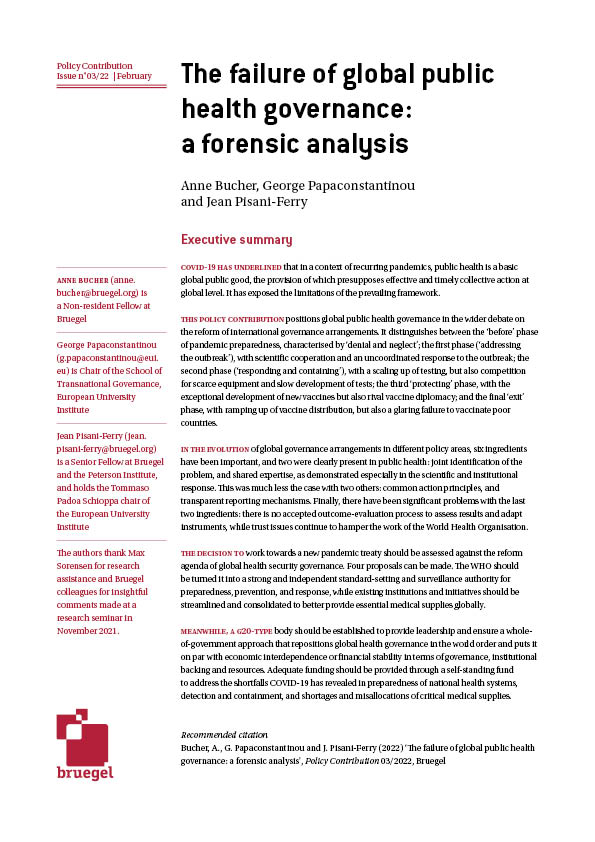Blog Post
COVID-19 has widened the income gap in Europe
Workers with low-educational levels suffered far worse than others in terms of COVID-19 related job losses during the first half of 2020 in the EU. Jobs for tertiary-educated workers even increased. Thus, the pandemic has increased income inequality, reinforcing the case for inclusive development.
Though COVID-19 caught almost everyone by surprise, the inequality it has brought in its wake should have been predictable. A look back at the historical record shows us that previous epidemics increased income inequality. European governments presumably considered these outcomes when designing wide-ranging measures to protect employment and support sectors hard hit by the pandemic. Unfortunately however, these measures have not been effective enough to contain the growing gap between rich and poor.
In the European Union, 8% of workers educated to lower secondary level or below lost their jobs between the last quarter of 2019 and the second quarter of 2020. Over the same period, the number of jobs for workers with university degrees increased by 3% (Figure 1). Jobs for employees with middle-level qualifications declined by 5%.
This picture of differences between low-educated and tertiary-educated workers can be seen in all EU countries and the United Kingdom (Figure 2). Jobs for low-educated workers fell everywhere, while the jobs for tertiary-educated workers increased in 14 EU countries and the UK, and fell in 11 EU countries (data is not available for Germany and likely includes an error for Lithuania). In these 11 countries, the decline for tertiary-educated employees was smaller than for low-educated employees. The fall in the employment of low-educated workers has been especially large in several central and eastern European countries, Ireland and Spain.
By occupation, elementary occupations (or unskilled workers; see the classification here) suffered from a 9% drop, the number of service and sales workers fell by 8%, while the number of plant and machine operators and assemblers declined by 5%. In contrast, professional jobs increased by 3%, though the number of managers declined by 4%.
Even within occupational groups, education levels have made a difference. For example, among professionals, employment for those with tertiary education has gained 4%, while for those with middle-level education it has dropped by 3%. Among service and sales workers, employment for those with tertiary education dropped by 6%, but for those with middle-level education the drop was 8%, and for those with the lowest level of education it was 11%.
Gender differences in this have been relatively modest. Employment in the EU for low-educated women declined between 2019 Q4 and 2020 Q2 by 8.3%, while for men the decline was 7.1%. For tertiary-educated workers, the gain was 1.9% for women and 3.6% for men. There are however country-specific differences (see Figures 3 and 4).
Data for the third quarter of 2020 is available for only a few countries. In France and Spain there was a roughly 2% rebound in the number of jobs for low-educated workers (which has hardly compensated for the fall of about 10% in the preceding two quarters), while in Latvia, Portugal and Sweden, employment of low-educated workers dropped further in the third quarter.
Sectors more exposed to the pandemic, including restaurants, travel, entertainment and personal services have unsurprisingly suffered more. But the ability to telework has greatly influenced labour market outcomes. About 70% of those who completed university studies are able to work from home, compared to about 15% of those who have not completed secondary school. Two-thirds of professionals and 85% of managers can work from home, in contrast to close to zero for workers in transportation, installation, construction and agriculture.
Nevertheless even within industries, the ability to telework made a difference for employment losses. In the United States, in industries heavily exposed to the pandemic, employment fell by a staggering 42% for those who cannot telework, and by 22% for those who can, between February and April 2020. In less-exposed industries, job losses were 15% for those who cannot telework as opposed to a 7% for those who can. Thus, both education level and ability to telework have influenced the likelihood of job losses, beyond the sectoral impacts of the pandemic. The pandemic has also accentuated the divide between the young and old.
People with lower education levels tend to have lower incomes and wealth, and are less able to telework than people with tertiary degrees. Also, a larger share of income comes from wages for lower-educated people than for tertiary-educated people, and thus loss of a job is a bigger income shock for the lower-educated. Consequently, the COVID-19 pandemic has increased income inequality between the rich and the poor even in Europe, where governments put in place massive employment protection programmes. This finding reinforces the urgency of policies fostering inclusive development.
Recommended citation:
Darvas, Z. (2020) ‘COVID-19 has widened the income gap in Europe’, Bruegel Blog, 3 December
Republishing and referencing
Bruegel considers itself a public good and takes no institutional standpoint. Anyone is free to republish and/or quote this post without prior consent. Please provide a full reference, clearly stating Bruegel and the relevant author as the source, and include a prominent hyperlink to the original post.









